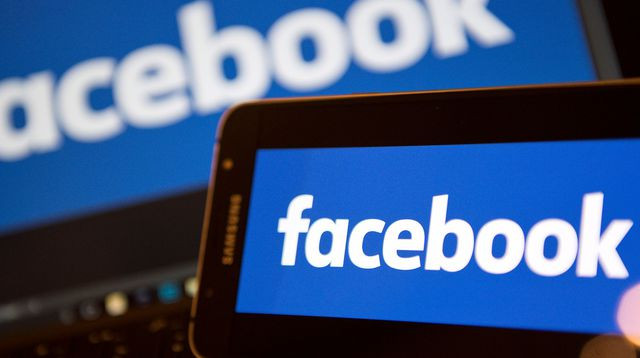Quitting Facebook will make you less stressed, study reveals
Just five days without Facebook is enough to reduce one’s levels of the stress hormone cortisol

Australian researchers claim, short breaks or “vacations” from Facebook might be a good idea. PHOTO: AFP
According to Statista, an online statistics, market research portal, Facebook currently has more than two billion active monthly users, which makes it the most popular social network by a large margin.
Facebook needs 'a few years' to fix problems: Zuckerberg
The much-discussed Cambridge Analytica scandal may have damaged Facebook’s reputation, as well as its shares — which have, as Time noted, posted their steepest drop since 2015 — but how does Facebook affect our mental health and well-being?
In the study published in the Journal of Social Psychology, titled “The Burden of Online Friends,” authors Dr Eric Vanman, Rosemary Baker from the University of Queensland (UQ) and Dr Stephanie Tobin from the Australian Catholic University attempted to answer the question of the effects of giving up Facebook on mental health, stress and well-being.
“I have been a Facebook user for 10 years. I had talked to my co-authors about how I occasionally had to ‘quit’ Facebook from time to time because I found it overwhelming as the number of my friends grew,” said Dr Vanman, a senior lecturer in the School of Psychology at the UQ and lead author of the study to PsyPost in an interview.
For their experiment, the researchers recruited 138 active Facebook users. Sixty participants were randomly assigned to a condition in which they were instructed to completely give up Facebook for five days “No Facebook”, while the remaining 78 participants continued to use Facebook as “normal.”
Dr Vanman and his colleagues surveyed the participants regarding their life satisfaction, stress, mood, and loneliness before and after the experiment. They also tested the participants’ salivary cortisol levels, a physiological measure of stress.
Zuckerberg loses status as guardian of Facebook users
The researchers concluded the following. Those in the “No Facebook” control group spent more face-to-face time with their friends.
The Inquisir article said that after taking a five day break from Facebook, many participants were happy to return to it, even though using the social network caused stress. In other words, the reduction in cortisol levels was evident even after five days, but some individuals felt like they were “missing out.”
Popularly referred to as the Fear of Missing Out – FoMO, a 2013 study on this subject, published in Computers in Human Behavior, defined the phenomenon as a “pervasive apprehension that others might be having rewarding experiences from which one is absent, characterised by the desire to stay continually connected with what others are doing.”
Dr Vanman’s own experience of quitting Facebook from time-to-time prompted the idea for the study. He said in the PsyPost interview “Whenever I would quit Facebook, I’d feel an immediate sense of relief that lasted for days. But then I would start feeling like I was missing out (FOMO) and I would have to rejoin. The cycle would start all over.”
The professor continued that the effects of Facebook on one’s cortisol levels and overall mental health and well-being need to be explored more. “We don’t know how long it takes to get this reduction in cortisol or when it would start to increase again before someone decided to get back on Facebook.
For example, it could be that being off Facebook for the first few days reduces stress, but, the longer one feels like he or she is missing out, cortisol starts to increase again.”
Facebook settles lawsuit over 2012 IPO for $35 million
Dr Vanman and his colleagues suspect these effects are not unique to Facebook, but also assert that a much bigger study, in which the effects of social media on cortisol levels would be studied, is needed.
The scholars’ preliminary findings suggest that there is indeed a link between stress and social media. The Australian researchers claim, short breaks or “vacations” from Facebook might be a good idea.
This story originally appeared on The Inquisitr.



















COMMENTS
Comments are moderated and generally will be posted if they are on-topic and not abusive.
For more information, please see our Comments FAQ